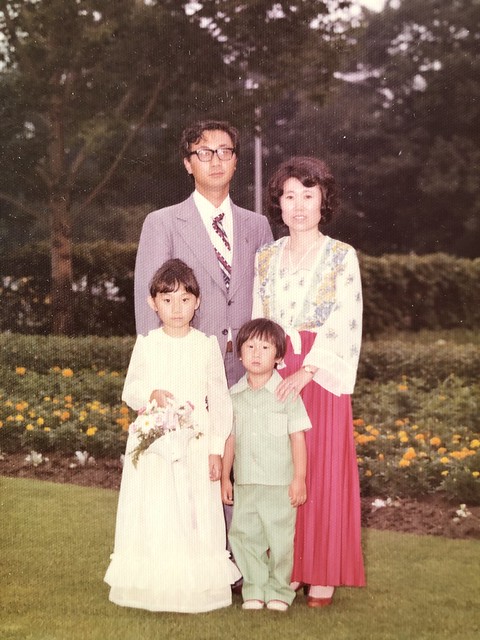You are here
Stuck
This past March, we almost lost our dad as he struggled with complications that arose from colon surgery.
Just before he was taken away for emergency open abdominal surgery, in thinking that there was a good chance he wouldn't make it, while fighting back tears, his last words to my mom were "수고했어," which translates to "you did a good job," but can be a way of saying thank you.
It was the best he could do to express everything he couldn't over 50+ years of marriage - every heartfelt thank you, apology, request to be forgiven, and much more, all rolled up into four Korean syllables - 수고했어.
Not long after, as my dad struggled to recover in his hospital bed, there were another couple of days when he looked to be in danger. On one of those nights, despite extreme weakness, he surprised me in saying that he knew that he was tough on me when I was growing up, and that he was sorry - it was the first time I heard him say "I'm sorry."
Of course I told him everything was fine, and that everything worked out for the best. But I began to wonder why he had waited until he thought he was departing to express such things to my mom and me. Wouldn't it have been better for him, us, and our relationships if he had shared from his heart long ago?
In reflecting on this, I realized that him waiting as long as he did wasn't because he didn't want to share. Rather, it was because he couldn't. The desire to say sorry and to express gratitude and love were stuck inside because of his own wounds. The visceral fear that came with feeling close to death gave him the courage to express what was stuck deep within for decades.
There's a Korean saying: People don't die from crying. They die from the inability to cry.
This is probably true for many people across all cultures - due to some level of trauma, the ability to share from the heart has been lost.
Why does this matter? Because most of us know what it's like to feel hurt by a loved one who won't help us heal by showing tenderness or remorse. If we imagine some of the trauma that they experienced when they were younger which caused blockage within, it's more possible to have compassion for them rather than resentment.
Join more than 80,000 readers worldwide who receive Dr. Ben Kim's free newsletter
Receive simple suggestions to measurably improve your health and mobility, plus alerts on specials and giveaways at our catalogue
Please Rate This
Highest RatedNo articles have been rated for usefulness recently, please check later. | Related Posts | ||











